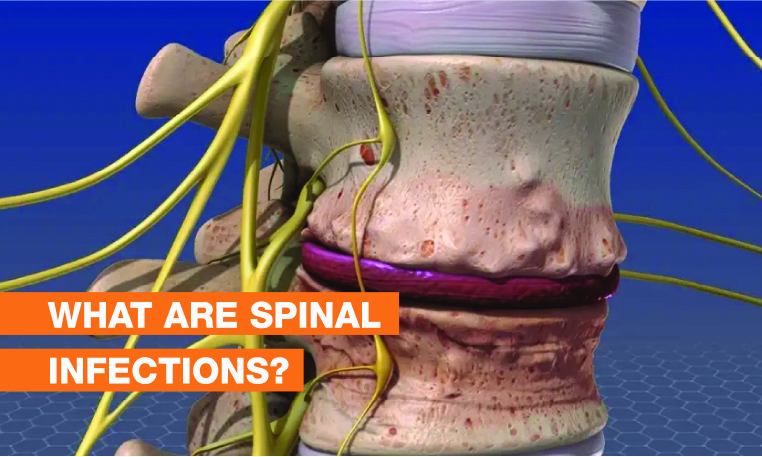What are Spinal Infections?
, 8 months ago
Spinal infections can be caused by bacteria, viruses, fungi, or other pathogens. Spinal infection may occur in its different parts, such as the vertebral column, the spinal canal, intervertebral disc space, or soft tissues. One thing to be noted is that it mostly occurs after the surgery. You can read further to learn more about what are spinal infections, their types and treatment options.
Types of Spinal Infections
Spinal infections are of different types:
- Osteomyelitis: Osteomyelitis is a type of spinal infection that occurs when the spine gets exposed due to a traumatic injury or when bacteria spreads to the vertebrae from the blood. It occurs most commonly.
- Discitis: It is a type of spinal infection that occurs in the intervertebral discs. In this type, the discs become inflamed.
- Epidural Abscess: This kind of infection occurs between the spinal cord lining and the vertebrae. This can put pressure on the spinal cord and can cause weakness.
- Meningitis: It is the inflammation of the membranes covering the spinal cord and brain called meninges. This could be a bacterial, viral, or fungal infection.
Symptoms of Spinal Infections
Symptoms of spinal infections
may differ depending on the type. Pain is the most common symptom in all types of spinal infections. Other symptoms of spinal infections are:
- Formation of pus around the surgical site
- Redness and swelling
- Severe back pain
- Fever and chills
- Difficulty in passing bowels and urine
- Weakness and spasms of muscles
- Numbness, tingling, and impaired sensation in the lower legs
Causes of Spinal Infections
Spinal infections are caused by bacterial or fungal infections. The infection may spread to the spine through the bloodstream. Causes of spinal infections include the following:
- Surgery: Spinal infections are common after a spinal surgery.
- Injury to the Spine: Injury to the spine can also cause an infection
- Bacterial or Viral Infection in Other Body Parts: Any kind of infection in other body parts can cause spinal infection as it may spread through the bloodstream.
Treatment of Spinal Infections
Spinal infections
may require non-invasive or surgical treatment, depending on the severity of the infection. The QI Spine Clinic offers the best non-invasive treatment. You can consult with a spine doctor to get a proper diagnosis and treatment for spinal infections.
Non-invasive treatment includes a course of intravenous antibiotic therapy for a few days till the symptoms disappear.
The doctor may advise you to stay physically inactive for a few days till the back pain gets relieved.
Surgical Treatment
Surgical treatment of spinal infections is recommended in severe cases. Surgery is recommended only if there is bone destruction, neurological deficits, sepsis, and when antibiotic therapy fails to give relief.
Conclusion
Spinal infections can occur due to bacterial, viral, or fungal infections. Spinal infections can occur in different parts of the spine. Symptoms may vary depending on the part of the spine affected. Treatment is based on the severity of the infection. Therefore, you must consult with the highly experienced healthcare provider at QI Spine Clinic if you suffer from constant and severe
back pain.

